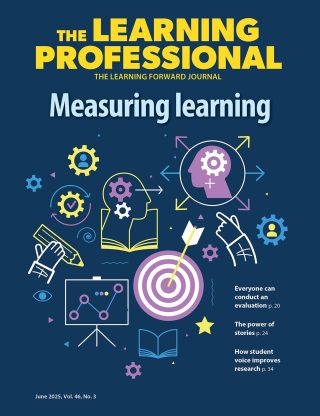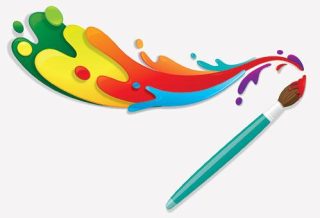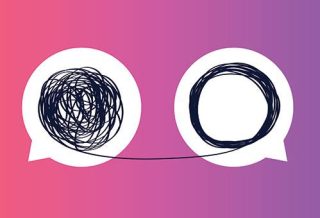IDEAS
An argument for learning
Science teachers and students build literacy through text-based investigations
By Cynthia Greenleaf
April 2017
Vol. 38 No. 2
Read the remaining content with membership access. Join or log in below to continue.
Sed ut perspiciatis unde omnis iste natus error sit voluptatem accusantium doloremque laudantium, totam rem aperiam, eaque ipsa quae ab illo inventore veritatis et quasi architecto beatae vitae dicta sunt explicabo. Nemo enim ipsam voluptatem quia voluptas sit aspernatur aut odit aut fugit, sed quia consequuntur magni dolores eos qui ratione voluptatem sequi nesciunt. Neque porro quisquam est, qui dolorem ipsum quia dolor sit amet, consectetur, adipisci velit, sed quia non numquam eius modi tempora incidunt ut labore et dolore magnam aliquam quaerat voluptatem.
Cynthia Greenleaf (cgreenl@wested.org) is co-director and director of research and Willard R. Brown (wbrown@wested.org) is a senior associate at the Strategic Literacy Initiative, WestEd.
References
Anderson, R.D. (2002). Reforming science teaching: What research says about inquiry. Journal of Science Teacher Education, 13(1), 1-12.
Anderson, R.D. (2002). Reforming science teaching: What research says about inquiry. Journal of Science Teacher Education, 13(1), 1-12.
Brown, A.L. (1992). Design experiments: Theoretical and methodological challenges in creating complex interventions in classroom settings. The Journal of the Learning Sciences, 2(2), 141-178.
Cavagnetto, A.R. (2010). Argument to foster scientific literacy: A review of argument interventions in K-12 science contexts. Review of Educational Research, 80(3), 336-371.
Goldman, S.R., Brown, W., Ko, M.-L., Britt, M.A., Greenleaf, C.L., Lawless, K., … Yukhymenko, M. (2016). Explanatory modeling in science through text-based inquiry: Testing the efficacy of the READI intervention approach. Presented at the American Educational Research Association (AERA) 2016 Annual Meeting, Washington, DC.
Heller, R. & Greenleaf, C. (2007). Literacy instruction in the content areas: Getting to the core of middle and high school improvement. Washington, DC: Alliance for Excellent Education.
OECD. (2016). PISA 2015 results (Volume I): Excellence and equity in education. Paris, France: OECD Publishing.
Pearson, P.D., Moje, E., & Greenleaf, C. (2010). Literacy and science: Each in the service of the other. Science, 328(5977), 459-463.
Schoenbach, R., Greenleaf, C., & Murphy, L. (2012). Reading for understanding: How Reading Apprenticeship improves disciplinary learning in secondary and college classrooms. San Francisco, CA: Wiley Press.
Schoenbach, R., Greenleaf C., & Murphy, L. (2016). Leading for literacy: A Reading Apprenticeship approach. San Francisco, CA: Wiley Press.
Yeager, D.S. & Walton, G.M. (2011). Social-psychological interventions in education: They’re not magic. Review of Educational Research, 81(2), 267-301.
Recent Issues
NAVIGATING NEW ROLES
April 2025
Whether you’re new to your role or supporting others who are new,...
LEARNING DESIGNS
February 2025
How we learn influences what we learn. This issue shares essential...
BUILDING BRIDGES
December 2024
Students benefit when educators bridge the continuum of professional...
CURRICULUM-BASED PROFESSIONAL LEARNING
October 2024
High-quality curriculum requires skilled educators to put it into...











